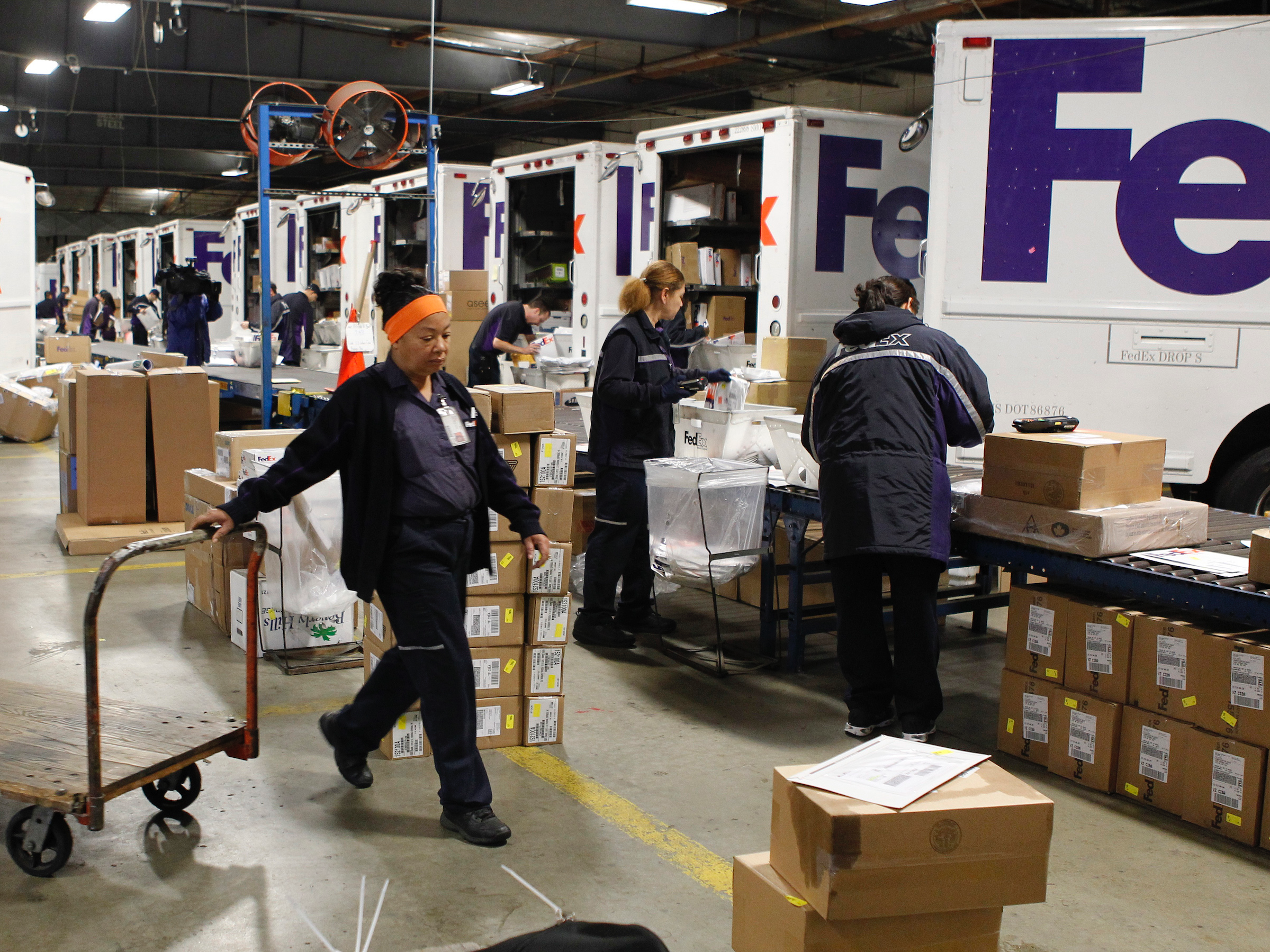- FedEx Express, the company’s air cargo segment, has ended its relationship with Amazon.
- According to FedEx’s most recent quarterly report, the company certainly needs fewer Amazon-like customers – ones with huge volumes but low margins.
- Package volume through FedEx’s non-overnight air deliveries has jumped by 24%, but revenue per package has decreased by 7%.
- Visit Business Insider’s homepage for more stories.
Amazon is a big customer for delivery companies, but moving millions of Prime boxes isn’t a high-margin business for some.
“Amazon packages are very small, and they don’t take up a whole lot of space, but at the same time there’s not a whole lot of money to be made by moving them,” Cathy Roberson, an analyst with Logistics Trends & Insights LLC, told Business Insider.
FedEx’s most recent quarterly earnings highlighted that. The Memphis, Tennessee-based package carrier’s segment of US deferred packages (non-priority shipments) jumped by 24%. But the revenue per package dipped by 7% – to $15.41 a package from $16.52. It shows the difference between volume and yield – a high-volume segment isn’t necessarily one that drives operating profits.

US deferred packages are non-overnight air shipments that don't need to be delivered before a certain time. It comprises about a third of FedEx's domestic business.
FedEx's air cargo network was built to carry priority, overnight shipments to deliver before certain times, but e-commerce doesn't have the same time crunch or service demands. Analysts say margins at Express have declined in recent years, partially because of that mismatch in Express' network and the fastest-growing delivery segments.
"At what point do we question the scale of the Express networks?" the Barclays analyst Brandon Oglenski asked FedEx's CEO and founder, Fred Smith, during a call with investors on Tuesday, adding: "Because we've seen decade after decade of low returns, low margins, and peak economic activity that can't put in a pretty good return, but still never really crossing that threshold of covering the cost of capital."
"The only way I can respond to that is obviously the plans and the programs we put in place were designed to create superior returns," Smith responded. "We didn't just decide to do it for the hell of it, and it reminds me a little bit about that old adage of Mike Tyson that everybody's got a plan till they get hit in the mouth."
Amazon is a prime example of low margins and high business
The margin confusion points to a key financial reasoning for FedEx's choice earlier this month not to renew its US air contract with Amazon. FedEx moved 200,000 Amazon packages a day, according to Moody's Investors Service.
Amazon made up some 1.3% of FedEx's 2018 revenue. But Donald Broughton, the founder and manager partner of Broughton Capital, told Business Insider the operating profit from that revenue was under 0.25% - "something between tiny and zero."
The relationship will end Sunday and not affect FedEx's other relationships with the company, FedEx said. "We respect FedEx's decision and thank them for their role serving Amazon customers over the years," an Amazon representative told Business Insider.
"Our strategic decision to not renew the FedEx Express US domestic contract with Amazon will also be a near-term headwind, which we expect to reverse to a positive in FY 2021, as we replace the lost volume and optimize the network," Brie Carere, FedEx's chief marketing and communications officer, told investors this week.
Do you work at FedEx, Amazon, or another major transportation company and have an idea to share? Email me at [email protected].

